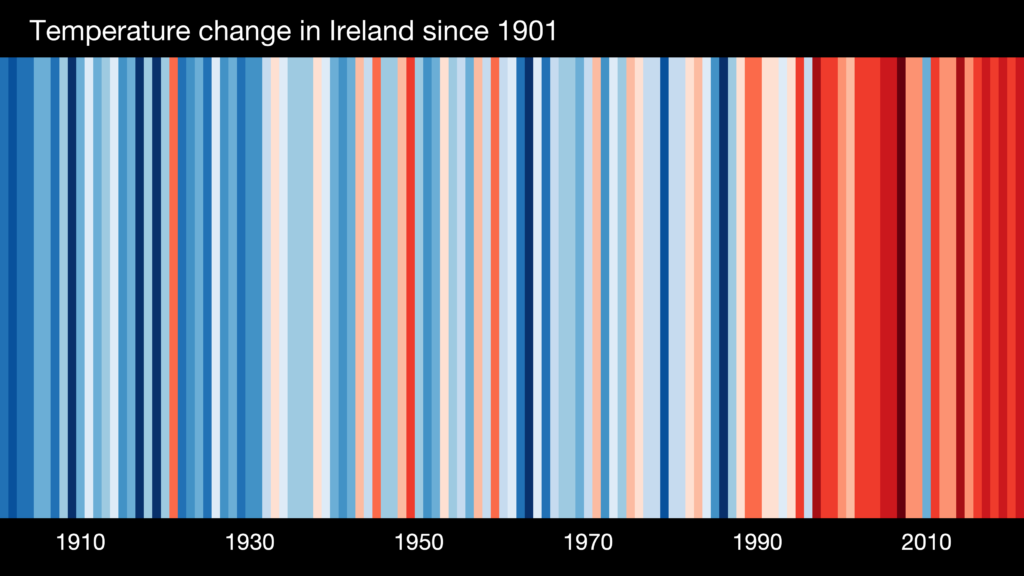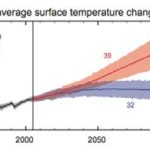Groundwater resources in Ireland As the largest store of available…
EPA statement on the Intergovernmental Panel on Climate Change Synthesis Report
20th March 2023: The Environmental Protection Agency (EPA) welcomes the publication of the Intergovernmental Panel on Climate Change’s (IPCC) Synthesis Report as part of its 6th Assessment cycle. This report tells us how and why our climate is changing and the interlinked threat it poses for human health ecosystems and biodiversity.
The Intergovernmental Panel on Climate Change (IPCC) has published the Synthesis Report as part of its 6th Assessment Cycle. This marks the completion of the IPCC’s landmark 6th Assessment process. Comprehensive scientific assessment reports are published every 6 to 7 years; the latest, the Fifth Assessment Report, was completed in 2014 and provided the main scientific input to the Paris Agreement.
The Synthesis Report combines findings on climate science, mitigation and adaptation – to provide the full picture of climate change and its challenges. Its findings include:
- Global warming has reached 1.1°C above pre-industrial levels and warming of 1.5oC may occur in 10-20 years unless effective global actions to reduce greenhouse gas emissions are taken.
- The ongoing build-up of greenhouse gases in the atmosphere is driving global warming with emissions continuing to increase; the main sources are fossil energy use, unsustainable land use and unsustainable patterns of consumption and production.
- The impacts of global warming are evident around the world and the rate of many changes in the climate system has increased, including extremes such as heat waves.
- The scale of risks increases with warming and particularly beyond 2oC. Higher risks are now expected at lower warming levels, including risks of large scale and irreversible impacts.
- These risks include displacement; loss of species; mortality risks related to increasing global exposure to heat and humidity; and loss of staple food production.
- Major global changes will continue even after the global temperature increase is halted including sea-level rise and glacier loss. Limiting warming to 1.5oC would reduce both the rate and scale of these changes.
- The decisions and actions we take over this decade will determine the scale of future climate change and have intergenerational consequences.

The IPCC findings are clear, stark and challenging. They reinforce the urgent need for action to reduce greenhouse gas emissions while adapting to the current and future impacts of climate change.
This report which completes the IPCC 6th Assessment cycle will inform how world governments, including Ireland, will respond when they consider progress towards the Paris Agreement goals as part of the first Global Stocktake later in 2023. The EPA is also actively considering how these global messages can inform our work.
Laura Burke, EPA Director General
This has been the longest and most challenging IPCC Assessment Cycle. It has also been the most productive, including three special reports and the assessment report. This Synthesis report is based on their findings and provides the essence of our current understanding of climate change and the responses that are needed if we are to safeguard the Earth’s climate. Actions to protect our climate and reduce the risks of climate impacts are possible across all sectors. Delays increase these risks so now is the time to act.
Dr Frank McGovern, EPA
The EPA is leading the development of Ireland’s first Climate Change Assessment based on scientific research and systematic observations in Ireland. It will be published later this year. The report will build on and localise information from this IPCC Synthesis Report and the underlying reports provided during the 6th assessment cycle.
About the Intergovernmental Panel on Climate Change
The Intergovernmental Panel on Climate Change (IPCC) is the UN body for assessing the science related to climate change. It was established by the United Nations Environment Programme (UNEP) and the World Meteorological Organization (WMO) in 1988 to provide political leaders with periodic scientific assessments concerning climate change, its implications and risks, as well as to put forward adaptation and mitigation strategies.
IPCC assessments provide governments, at all levels, with scientific information that they can use to develop climate policies. IPCC assessments are a key input into the international negotiations to tackle climate change. IPCC reports are drafted and reviewed in several stages, thus guaranteeing objectivity and transparency.
Learn more:
AR6 Synthesis Report: Climate Change 2023 (ipcc.ch)
The Status of Irelands Climate, 2020 and Summary brochure
The EPA hosts the Climate Ireland information portal which provides interactive access to climate information for Ireland.
Climate Ireland, Ireland’s Climate Status Tool, provides interactive access to the Climate Status Report Ireland (CSRI) 2021.







